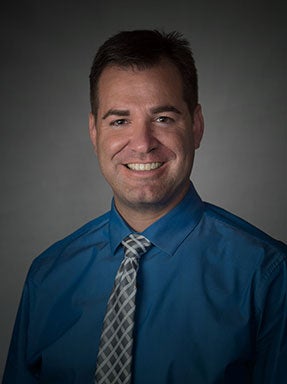DU to Tackle Shortage of Social Workers in Underserved Communities
$1.9 million grant helps create CLIMB@DU
The Health Services and Resources Administration of the U.S. Department of Health and Human Services has awarded the University of Denver’s Graduate School of Social Work (GSSW) a $1.9 million grant to train social workers to meet the behavioral health care needs in rural and medically underserved communities in Colorado.
“It is imperative that the behavioral health workforce is increased to help with the complex mental health issues that the residents of our state face,” says Michele Hanna, an associate professor in GSSW and one of the lead faculty members on this project. “Of the 64 counties in Colorado, 56 are designated as mental health professional shortage areas.”
Hanna says these shortages are creating long appointment wait times, with many patients facing challenging journeys across great distances to get professional help. She says delays and daunting distances discourage many patients from seeking care.
The four-year initiative is called CLIMB@DU, which is short for Collaborative Learning and Innovative Educational Models of Behavioral Health. Faculty and staff from GSSW and the Butler Institute for Families will develop and implement all aspects of the CLIMB@DU program. By 2021, GSSW will have trained 115 social workers to provide culturally and linguistically competent behavioral health service for these targeted areas.
“Innovative, statewide-integrated care models present opportunities to address this health-care crisis; yet, these models will remain ineffective without an increase in the number of trained behavioral health care professionals,” says Michael Talamantes, a clinical associate professor in GSSW and the other lead faculty member for CLIMB@DU. “With Colorado in the midst of transforming health care in the state due to the State Innovation Model (SIM) initiative, the timing of this program couldn’t be any better.”
Funded by the Centers for Medicare and Medicaid Services, SIM is helping practices integrate behavioral health and primary care across Colorado. The initiative’s ultimate goal is to provide better care, lower costs and improve the overall health of Coloradans.
“Social workers are the leading providers of behavioral health services in the United States. However, the state of Colorado does not have enough social workers to meet the need. We are delighted to partner with the state to meet this critical need," says Amanda Moore McBride, the Morris Endowed Dean and Professor of GSSW. “We also have multiple health providers as partners across the state — in Native communities, in rural communities and right here in the city of Denver.”
The GSSW grant was made possible through a comprehensive public-private partnership. There are more than 10 different partners, including: SIM, the Colorado Department of Public Health and Environment and the University of Colorado’s College of Nursing. The grant will help provide a $10,000 stipend to students participating in the program.
“Stipends will provide incentives for students to pursue a career in integrated behavioral health settings who might otherwise not have access to higher education,” Hanna says. “Through the development of innovative field internship placements, the students will be provided the opportunity to receive specialized training in evidence-based, integrated care and prepare to enter the integrated behavioral health workforce in the communities that need it most.”
While the grant will go a long way to training future social workers for these underserved communities, the goal is for CLIMB@DU to have a much greater impact across the country.
“We expect to be the leader in behavioral health for the rural communities of Colorado as well as our neighboring states in the Four Corners region,” Talamantes says. “We anticipate to serve as a model for innovative integrative health programming to increase the behavioral health workforce for schools of social work.”











